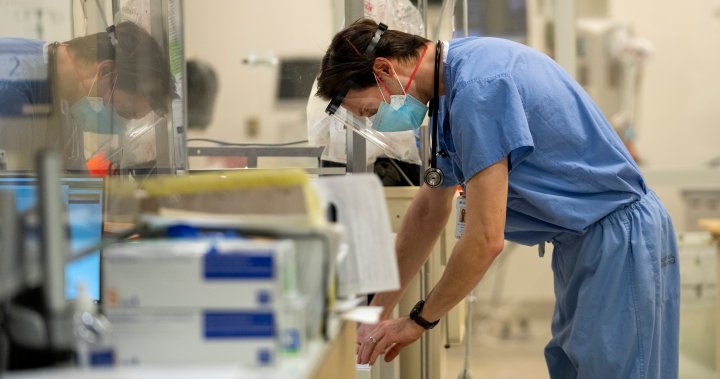With the upcoming unveiling of the 2024 federal budget in Canada, there is anticipation around how the government plans to address the ongoing strains on the nation’s health-care system. Despite the Liberal government already unveiling plans for a national food program and securing a new health-care deal worth $196.1 billion over 10 years, the Canadian Medical Association (CMA) has warned that without proper investment from all levels of government, the health-care system will continue to struggle to meet patient needs. The CMA is urging the federal government to ensure budget investments are focused on addressing gaps in the health system, such as increasing funding for team-based medical care and virtual care, and reducing administrative burdens.
Federal Health Minister Mark Holland believes that the upcoming budget will help alleviate the strained conditions facing Canada’s health-care system. He emphasized the government’s commitment to swiftly address these issues and stated that they are actively working to improve the system. Holland highlighted recent milestones in health care, including a new pharmacare agreement that covers birth control and diabetes medication, as well as recent bilateral agreements with provinces and territories to improve access to family doctors. While he believes Canada has one of the best health systems in the world, CMA President Dr. Kathleen Ross disagrees and calls for more collaboration and investment to address the crisis in the health-care system.
One key aspect of the upcoming budget that has been announced is a national school food program, which will receive $1 billion over the next five years. The goal of this program is to feed an additional 400,000 children a year by expanding existing programs offered by provinces and school boards. Holland believes that providing healthy meals to children will have a significant impact on their health and development, potentially helping to address childhood mental health issues and save money in the long run. He expressed optimism that recent agreements with provinces and territories will lead to improvements in access to primary care and help reduce backlogs in the health system.
Dr. Ross emphasized the need for ongoing substantial investment in the health-care system to address gaps and improve access to care, working conditions for physicians, and modernize the system. She acknowledged that transforming the health-care system will take time and require ongoing commitment from the government. Ross highlighted the fact that Canada has fewer health-care providers and acute care beds compared to other similar OECD nations, and emphasized the importance of targeting measurable results and modernizing the delivery of care through team-based approaches. She stressed the need for continued investment and innovation in the health-care system to address the challenges that have been decades in the making.
Overall, there is a sense of urgency in addressing the challenges facing Canada’s health-care system, with the upcoming federal budget seen as an opportunity to make significant investments and improvements. While the government has made some progress in recent agreements and initiatives, there is a recognition that more needs to be done to address gaps, improve access to care, and modernize the system. The CMA’s call for ongoing substantial investment and collaboration underscores the need for a comprehensive approach to addressing the crisis in the health-care system and ensuring that all Canadians have access to quality care. As the budget is tabled, many will be watching to see how the government prioritizes health care and takes steps to address the longstanding issues in the system.













